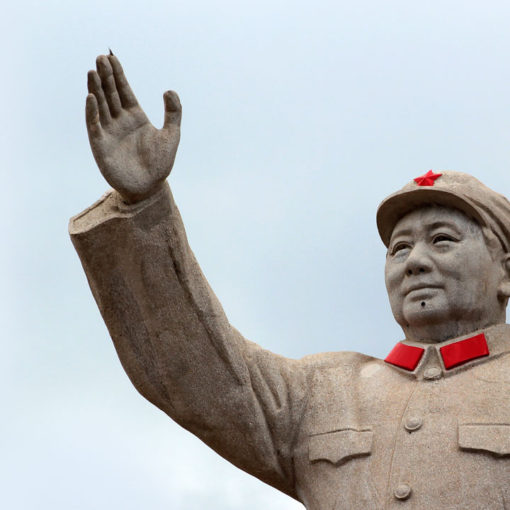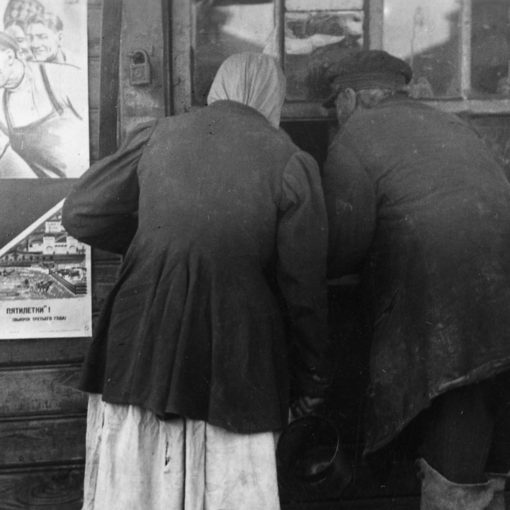In general, democratic socialism is defined as the combination of a socialist economic approach with a democratically elected government.
Unlike Marxist-Leninist socialism, as practiced in the Soviet Union, Cuba, and China, which relies upon a highly centralized, “planned” economy and one-party state, democratic socialism espouses a more moderate socialist economic model with free and fair elections.
Post-World War II Europe
After World War II, democratic socialism was incorporated in several Western European nations, including Great Britain, France, Italy, Belgium, Sweden, Norway, and Denmark.
In 1945, Clement Atlee was elected prime minister of Great Britain and enacted a slew of democratic socialist economic policies focusing on the nationalization of major industries and the foundation of a universal welfare state that included “free” health care, housing, and higher education.
A similar set of policies was pursued across Western European democracies, most notably in the Nordic nations. In Sweden, Democratic Socialist Prime Minister Tage Erlander ran the government from 1945 to 1969 while instituting several socialist economic policies and vastly expanding the nation’s welfare state. Denmark and Norway also elected democratic socialist governments that pursued similar policies during this period.
Initially, the universal welfare programs and nationalization of industries that occurred throughout these democratic socialist nations were extremely popular and embraced by the people. However, as time went on, a major problem came to the forefront: How could these generous government programs be funded?
The answer, of course, was ever-increasing taxation and the accumulation of public debt, which can be considered a form of indirect taxation. Eventually, the tax burden on the people became too big to bear, and many of these nations went in a decidedly different political and economic direction.
This was especially evident in the United Kingdom, which had become the “sick man of Europe” by the 1970s due to its stagnant economy, high taxes, and soaring inflation. In 1979, with its economy sputtering, the British people elected Margaret Thatcher as prime minister. Thatcher, who served in the position until 1990, instituted a series of reforms to deregulate Britain’s ailing economy, cut government spending, rein in welfare programs, privatize British industries that had been nationalized, and reduce taxes. By the mid-1980s, thanks to Thatcher’s reforms, the U.K. economy had roared back.
Thatcher became the face of conservative reforms that swept across Europe, eventually leading to the dismantling of many of the big government welfare programs and economic policies that democratic socialists implemented during the previous decades.
As Thatcher eloquently put it, “The problem with socialism is that you eventually run out of other people’s money.”
The Cold War
As described earlier, socialism has had a presence in the United States for a very long time. From utopian socialist communities in the mid-1800s to the formation of the Communist Party USA in 1919, socialist movements have been nothing new to America.
However, unlike in Europe, which embraced democratic socialism in the post-war period, socialism remained very suspect in the United States. During the late 1940s and early 1950s, anti-socialist sentiment in the United States reached a fever pitch, with McCarthyism and the “Red Scare” sweeping the nation.
Throughout the Cold War, the United States was engaged in an ideological battle against the looming threat of a worldwide communist takeover. From the Berlin Airlift, to the wars in Korea and Vietnam, to military interventions in Latin America, the United States engaged in a series of conflicts to contain the spread of communism.
However, after the fall of the Berlin Wall and the collapse of the Soviet Union in the early 1990s, the Cold War ended peacefully. In the years that followed, the United States sought to economically and diplomatically engage with the world’s last major communist bastion: China. Communist China has since become a major source of our international trade, despite its flagrant human rights violations and history of repression. China represents approximately 17 percent of total imports in the United States, more than any other country.
Democratic Socialism in the United States
Sen. Bernie Sanders, a democratic socialist who spent his honeymoon vacationing throughout the Soviet Union, is typically credited with bringing democratic socialism to mainstream America. In 2016, Sanders was a frontrunner for the Democratic Party’s presidential nomination, until he was ultimately defeated by Hillary Clinton.
Despite his defeat in 2016, Sanders’ policies gained traction in the Democratic Party, with several other Democrats such as Rep. Alexandria Ocasio-Cortez championing his socialist agenda. Sanders and his fellow democratic socialists seek to erect a welfare state that includes “free” health care, college, housing, as well as a universal basic income and several other socialist programs.
In recent years, mostly due to the rise of Sanders and like-minded Democrats, the Democratic Socialists of America (DSA) has become an increasingly powerful force in American politics.
According to the DSA, “Capitalism is a system designed by the owning class to exploit the rest of us for their own profit. We must replace it with democratic socialism, a system where ordinary people have a real voice in our workplaces, neighborhoods, and society.”
To achieve this new society, the DSA seeks to “collectively own the key economic drivers that dominate our lives, such as energy production and transportation,” and initiate “reforms like single-payer Medicare for All, defunding the police/refunding communities, the Green New Deal, and more.”
Although “free” health care, housing, and higher education sounds good on its face, it must be mentioned that there are strings attached. In Canada and the United Kingdom, which both offer “free” health care, rationing of services and long wait times (sometimes months and even years) for appointments and procedures are the norm. Moreover, government-run “free” health care often results in patients being denied services and treatments altogether. Because the government is the “single-payer” for health care services, unelected and unaccountable bureaucrats determine whether or not such services are necessary. And, because there is no profit motive in the health care sector for these nations, medical innovations, new drugs, and novel treatments are practically nonexistent.
As economist Milton Friedman once said, “There is no such thing as a free lunch,” meaning that nothing is actually free. One way or another, the cost of every government program must eventually be paid for by the people, via direct and indirect taxation. Governments do not “create” wealth, they can only attain wealth by seizing it from the people.
Recent polls show that democratic socialism is particularly popular among America’s youth. In light of this development, the DSA has launched Young Democratic Socialists of America (YDSA). In short, YDSA seeks to: “undermine the very foundations of capitalism,” bring “transformative reforms such as College for All, Medicare for All, a Green New Deal, and other demands,” while also “defunding the police, removing police from schools, providing safe housing for all, and investing in social programs.”
As YDSA clearly states, “we are fighting for a socialist transformation rather than simply a reformed version of capitalism.”
For now, YDSA, DSA, and the Communist Party USA remain outside of mainstream political ideology. Yet, if this book has taught anything, it is that socialist revolutions can happen quickly, anywhere, at any time.
For this reason, we leave our readers with this question to ponder: Could socialism take hold in the United States? If so–especially given the sordid, bloody history of socialism over the past century–is it naïve to believe that socialism in 21st century America would be any different from every previous time it has been instituted in world history?
Chris Talgo (CTalgo@heartland.org) is the editorial director and a research fellow at The Heartland Institute, as well as a researcher and contributing editor at StoppingSocialism.com.






